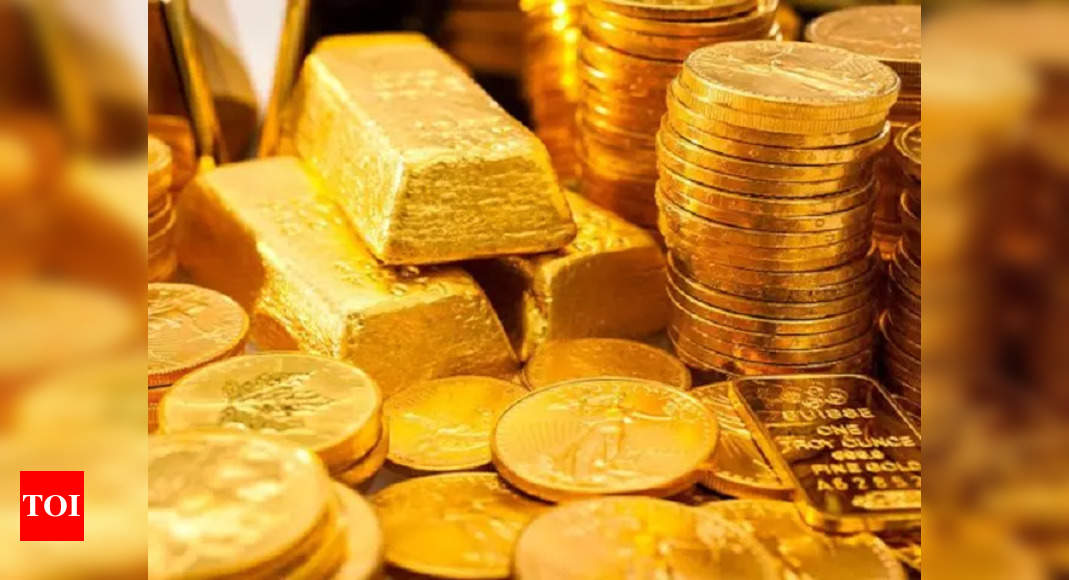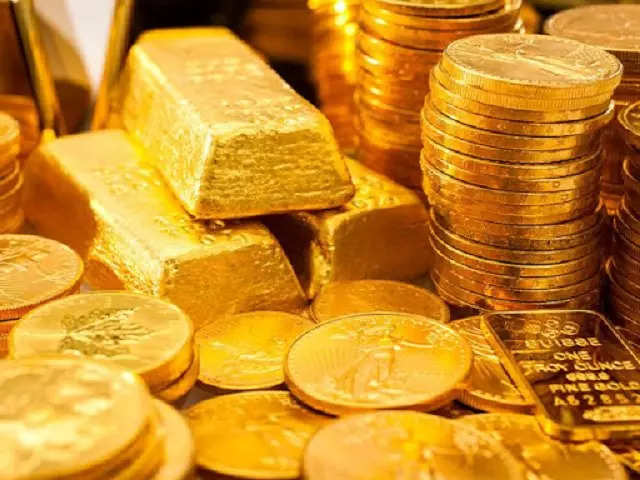[ad_1]
NEW DELHI: After witnessing the withdrawal of funds in the last three months, Gold exchange-traded funds (ETFs) attracted a net flow of Rs 165 crore in February, mainly due to a slight correction in local yellow metal prices.
This was in comparison to a net outflow of Rs 199 crore registered in January, Rs 273 crore in December and Rs 195 crore in November.
Prior to that, Gold ETFs attracted Rs 147 crore in October, data from the Association of Mutual Funds in India (Amfi) showed.
“Despite witnessing outflows across most markets, Gold ETFs in India witnessed inflows in February. This was largely backed by a small correction in local Gold prices. The demand for ETFs largely arises when there is a correction in prices,” Kavitha Krishnan, Senior Analyst – Manager Research, Morningstar India, said.
The demand for physical Gold in India is largely driven by festival and wedding season, she added.
Also, the segment saw an increase in the number of folios by around 20,000 to 46.94 lakh during the period under review.
Nirav Karkera, Head of Research at Fisdom, said that gold, as an asset class, is known to effectively align returns with inflation. The same deems it to be an important asset class today, especially for long-term retail investors.
“While broader equities seem choppy and attractive fixed income plays complex, many investors and asset allocators have started revisiting gold from a strategic allocation perspective,” he added.
Despite the inflow, the category saw its net assets under management (AUM) dropping to Rs 21,400 crore at the end of February from Rs 21,836 crore in January-end.
Overall in 2022, the inflow in Gold ETFs was Rs 459 crore, 90 per cent lower than Rs 4,814 crore registered in 2021, due to rising prices of yellow metal and increasing interest rate structure coupled with inflationary pressures.
Despite being a sizeable market, when it comes to physical gold, gold ETFs still comprise a small percentage of the overall Indian market, Morningstar India’s Krishnan said.
Gold ETFs, which aim to track the domestic physical gold price, are passive investment instruments that are based on gold prices and invest in gold bullion.
In short, gold ETFs are units representing physical gold, which may be in paper or dematerialised form. One gold ETF unit is equal to 1 gram of gold and backed by physical gold of very high purity. They combine the flexibility of stock investment and the simplicity of gold investments.
This was in comparison to a net outflow of Rs 199 crore registered in January, Rs 273 crore in December and Rs 195 crore in November.
Prior to that, Gold ETFs attracted Rs 147 crore in October, data from the Association of Mutual Funds in India (Amfi) showed.
“Despite witnessing outflows across most markets, Gold ETFs in India witnessed inflows in February. This was largely backed by a small correction in local Gold prices. The demand for ETFs largely arises when there is a correction in prices,” Kavitha Krishnan, Senior Analyst – Manager Research, Morningstar India, said.
The demand for physical Gold in India is largely driven by festival and wedding season, she added.
Also, the segment saw an increase in the number of folios by around 20,000 to 46.94 lakh during the period under review.
Nirav Karkera, Head of Research at Fisdom, said that gold, as an asset class, is known to effectively align returns with inflation. The same deems it to be an important asset class today, especially for long-term retail investors.
“While broader equities seem choppy and attractive fixed income plays complex, many investors and asset allocators have started revisiting gold from a strategic allocation perspective,” he added.
Despite the inflow, the category saw its net assets under management (AUM) dropping to Rs 21,400 crore at the end of February from Rs 21,836 crore in January-end.
Overall in 2022, the inflow in Gold ETFs was Rs 459 crore, 90 per cent lower than Rs 4,814 crore registered in 2021, due to rising prices of yellow metal and increasing interest rate structure coupled with inflationary pressures.
Despite being a sizeable market, when it comes to physical gold, gold ETFs still comprise a small percentage of the overall Indian market, Morningstar India’s Krishnan said.
Gold ETFs, which aim to track the domestic physical gold price, are passive investment instruments that are based on gold prices and invest in gold bullion.
In short, gold ETFs are units representing physical gold, which may be in paper or dematerialised form. One gold ETF unit is equal to 1 gram of gold and backed by physical gold of very high purity. They combine the flexibility of stock investment and the simplicity of gold investments.
[ad_2]
Source link

